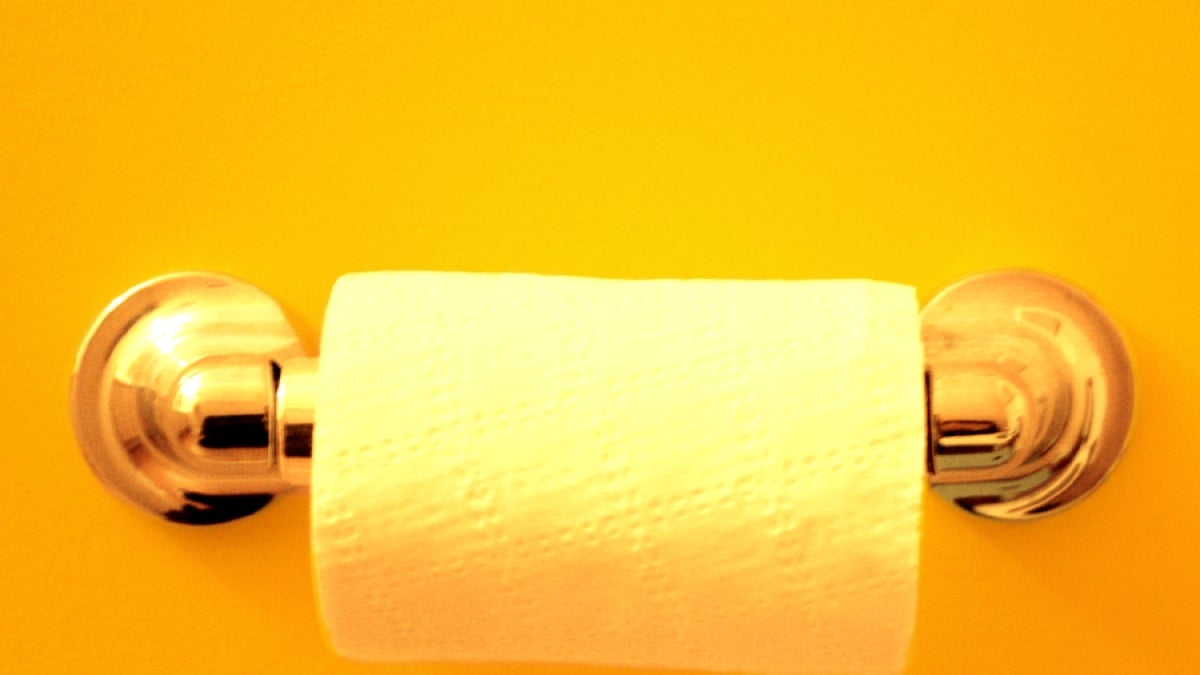A few years ago Corrie Whisner read a study about how humans share the same gut bacteria as their pets.
Naturally, this caused the assistant professor in ASU’s School of Nutrition and Health PromotionASU's School of Nutrition and Health Promotion is part of the College of Health Solutions. to consider the possibility of shared bacteria between other companions.
“I started to wonder if people within the same social network — like close friends or college students sharing a dorm room — might also share some of the same microbes,” she said.
So how do you prove or disprove this theory? One way is to start, well, in the bathroom.
Since August, Whisner’s research team has been collecting fresh fecal samples from more than 200 ASU freshmen as part of the devilWASTE study.
The samples will help Whisner study how the gut microbiome — the community of millions of bacteria living within your gastrointestinal tract — changes during the course of a freshman’s first year at college and its exposures to a new diet, environment and friends.
“The large intestine is like a Monopoly board: full of real estate where different bacteria take up residence.”
— Corey Whisner, assistant professor, School of Nutrition and Health Promotion
Whisner is interested how the changes in the microbiome relate to obesity and weight gain, but the results of studies like this could also have far-ranging effects as scientists are theorizing that the balance of bacteria in our bodies could have influence over everything from autoimmune disorders to mental acuity.
And while microbes may outnumber your own cells 10 to 1 that doesn’t mean they’re immune to the difficulties of life’s major transitions. In fact, times of stress and rapid change — like starting college — can have a significant impact on the bacterial communities in your gut, and consequently your health.
Somewhat surprisingly, few researchers have studied changes in eating behaviors among college students. In fact, Whisner’s study is thought to be the first ever to explore gut microbiome changes among college students.
“The large intestine is like a Monopoly board: full of real estate where different bacteria take up residence,” she said. “The types of bacteria that thrive in your gut depend in part on your diet.” These mostly-friendly bacteria help your body break down and extract energy from the food you eat.
Recent research suggests that the gut microbiome may play a role in obesity.
We all have a unique mix of bacteria in our guts. But in people with obesity, researchers note a shift in the makeup of the gut microbiome: Bacteria with a higher capacity for extracting energy from food seem to be more prevalent in people who are obese. These bacterial communities also cause higher levels of inflammation, which may worsen chronic diseases like metabolic syndrome or type 2 diabetes.
Depending on what her study finds, Whisner’s research may help university administrators make changes to the campus environment or to help promote healthy eating.
“If we see that college students’ gut microbiomes are shifting toward a makeup associated with obesity the next step is to try to shift dining hall meals or introduce health education to support healthier guts,” she said.
Alexandra Brewis Slade, co-director of the Mayo Clinic-ASU Obesity Solutions initiative, said this study is just one way ASU is rapidly growing its capacities in microbiome research.
“It is gratifying to see a project that so directly engages students on the ASU campus, and in a way that could help improve the health of our community.”
The devilWASTE is part of a larger, NIH-funded study called devilSPARC, led by SNHP Assistant Professor Meg Bruening. This study follows ASU students throughout their freshmen year to see how the social and environmental changes that come with starting college impact their eating behaviors, physical activity, and weight.
But for Whisner’s study, it all comes back to what comes out the back. So how are the volunteering students compensated for their donations?
They are given a small monetary gift. And, perhaps more important to college students looking to dress different then their peers, they also receive a T-shirt announcing “I pooed for science.”
More Health and medicine
College of Health Solutions program doing its part during Salute to Service
It wasn’t always easy for Marine veteran Chuck Hale when he first returned to civilian life. But he’ll never forget the help he received from a fellow former service member.“The first vet that helped…

What makes human culture unique?
Why is human culture — the shared body of knowledge passed down across generations — so much more powerful than animal cultures?“What’s special about our species?” is a question scientists have…

ASU honors students work on HPV research as part of Barrett College's largest-ever group thesis
Not every undergraduate student comes across the opportunity to do research as part of a team. Even fewer have had the chance to join a team of 86 students doing multidisciplinary research with real-…
